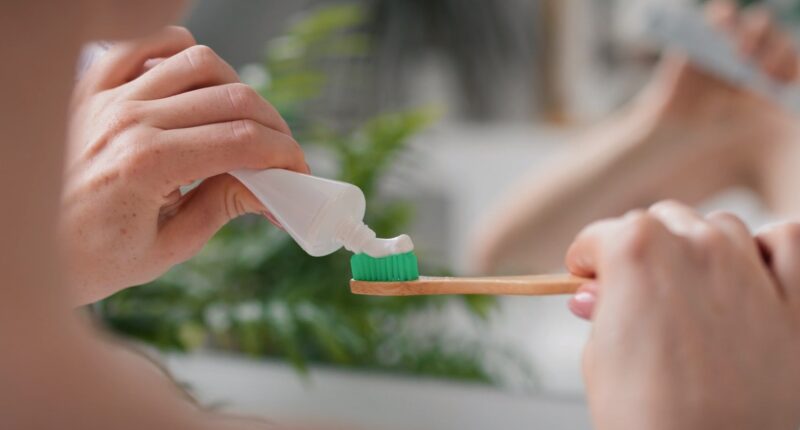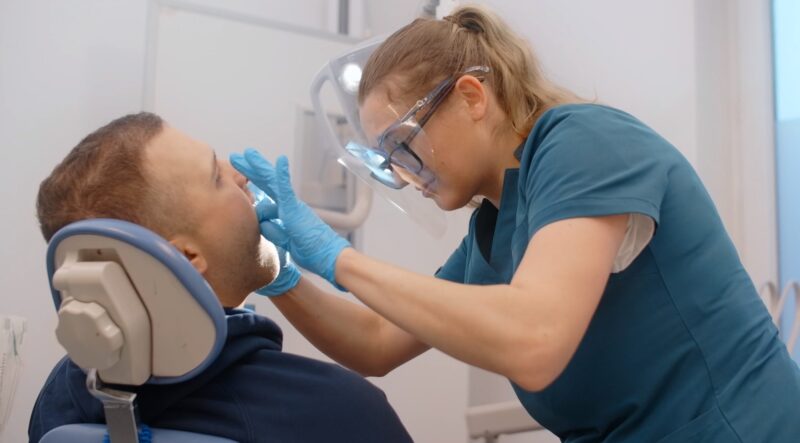Sometimes, bad breath is not just about brushing your teeth; it can also mean something is wrong with your stomach. You might have acid reflux, liver or kidney problems, or other gut issues that make your breath smell bad.
To fix this, you need more than just mints or mouthwash; you need to check your diet, drink enough water, and take care of your gut health. By doing these things, and getting help from a doctor if needed, you can make your breath better. It’s all about finding the link between what you eat, how you digest, and how you breathe.
First, Determine the Causes
Bad breath, a concern for many, often points to deeper issues than mere oral hygiene lapses. While common advice focuses on brushing and mouthwash use, understanding the root cause demands a broader perspective, especially when the stomach is involved.
Conditions like acid reflux, gastrointestinal disorders, and organ diseases not only disrupt digestion but also significantly impact breath quality.
What Are Some Specific Conditions?
A critical first step involves identifying specific symptoms and their potential sources. Acid reflux, for instance, pushes stomach contents back up the esophagus, leading to a sour taste and unpleasant breath. Similarly, liver and kidney diseases alter the body’s ability to filter toxins, resulting in distinctive odors that breath mints cannot mask.
Comprehensive diagnosis goes beyond standard dental checks. It may require consultations with specialists who can assess for conditions such as GERD (Gastroesophageal Reflux Disease), IBD (Inflammatory Bowel Disease), or SIBO (Small Intestinal Bacterial Overgrowth). These conditions, often overlooked in routine dental exams, play significant roles in breath quality.
Essential Diagnostic Steps
Essential steps include detailed medical histories, physical examinations, and possibly diagnostic tests like endoscopies or breath tests. Such thorough evaluation helps in crafting a targeted approach to treatment, addressing not just the symptoms but the underlying cause.
Awareness and action transform patient outcomes. Understanding that bad breath can signal complex health issues encourages a proactive stance toward health. It shifts the focus from temporary fixes to lasting solutions that enhance overall well-being.
Next, Adjust Your Diet

Diet directly affects not just overall health but specifically the quality of one’s breath. Foods consumed can either exacerbate or alleviate bad breath, especially when the underlying causes stem from the digestive system. An intentional adjustment in diet can serve as a powerful tool in combating bad breath originating from the stomach.
Focus on a Proper Meal Plan
To foster a healthier digestive environment, prioritize the inclusion of foods that support gut health and reduce acid production. High-fiber foods, such as fruits, vegetables, and whole grains, encourage regular bowel movements, which is crucial for reducing the likelihood of constipation—a common contributor to bad breath. Additionally, alkaline foods help neutralize stomach acid, potentially mitigating reflux symptoms.
Understanding the impact of certain foods on breath means also recognizing those to avoid. Spicy foods, garlic, onions, and high-fat meals can increase the risk of reflux and other digestive issues, leading to foul breath. Similarly, coffee and alcohol, known for their dehydrating effects, can diminish saliva production, thereby worsening breath odors.
Probiotics Can Make a Difference
Probiotics play a pivotal role in maintaining gut flora balance, crucial for digestive health and mitigating bad breath. Yogurt, kefir, sauerkraut, and other fermented foods introduce beneficial bacteria to the gut, aiding in digestion and potentially reducing the presence of odor-causing compounds in the stomach.
The relationship between diet and breath underscores the importance of mindful eating. By choosing foods that support digestive health and avoiding known triggers, individuals can significantly impact their breath’s freshness. This proactive approach to diet not only addresses bad breath but also contributes to a stronger, more resilient digestive system.
Then, Improve Your Oral Care Routine

An optimal oral care routine transcends mere brushing, reaching into meticulous cleaning techniques and products designed to tackle bad breath at its microbial source. This comprehensive strategy not only aims at removing food particles but also at neutralizing the bacteria responsible for foul odors.
Use Proper Cleaning Technique
Effective brushing involves not just the teeth but also the gums, tongue, and roof of the mouth, areas where bacteria thrive. Employing a toothbrush with soft bristles prevents gum damage while ensuring a thorough cleanse. Flossing daily removes hidden food debris between teeth, a common source of bad breath.
The role of tongue cleaning is paramount. A tongue scraper or a brush dedicated to the tongue can remove the bacterial film, significantly reducing odor. This step is crucial, as the tongue’s surface is particularly prone to harboring odor-causing bacteria.
Choose the Right Products
Choosing the right oral care products is crucial. Toothpastes and mouthwashes containing antibacterial agents can offer additional protection against bad breath. However, it’s essential to opt for alcohol-free mouthwashes, as alcohol can dry out the mouth, reducing saliva flow and inadvertently worsening bad breath.
Saliva plays a vital role in natural oral cleansing. Chewing sugar-free gum or lozenges stimulates saliva production, helping to wash away food particles and bacteria. This not only freshens the breath but also aids in neutralizing acids that can lead to tooth decay.
Don’t Forger the Regular Dental Visits

Routine dental check-ups and cleanings are indispensable. A dentist can identify and treat periodontal disease, a significant source of bad breath, and provide professional cleaning that surpasses at-home care.
Follow Up with Certain Habit Changes
Adopting specific lifestyle changes can significantly impact the battle against bad breath, especially when linked to stomach issues. These modifications range from improving hydration to engaging in regular physical activity, each playing a key role in promoting a healthier digestive system and, by extension, fresher breath.
Proper Hydration
Adequate water intake is crucial. It aids in maintaining saliva flow, essential for naturally cleansing the mouth and reducing bacterial growth. Drinking water throughout the day helps flush out food particles and bacteria, minimizing bad breath. Avoid dehydrating beverages like alcohol and caffeine, which can exacerbate dry mouth and bad breath.
Physical Activity

Regular exercise contributes to better digestion and can help reduce the risk of conditions like constipation, which is often associated with bad breath. Physical activity encourages a more efficient gastrointestinal system, ensuring toxins are expelled and reducing the likelihood of breath-related issues.
Quit Smoking
Tobacco products are detrimental to oral health, leading to gum disease, stained teeth, and bad breath. Quitting smoking or avoiding tobacco products altogether can significantly improve oral hygiene and reduce the risk of chronic bad breath.
Manage Stress
Stress impacts digestion and can exacerbate gastrointestinal issues linked to bad breath. Techniques such as meditation, yoga, or regular exercise can reduce stress levels, promoting better digestive health and fresher breath.
FAQs
Does bad breath mean bad gut?
Bad breath can sometimes be a sign of poor gut health. Bad breath can be caused by an imbalance of bacteria in the gut, gastrointestinal diseases, liver disease, or other conditions that affect the digestive system.
Which probiotic is best for bad breath?
Probiotics are good bacteria that can help balance the oral and gut microbiome and prevent bad breath. Some of the best probiotics for bad breath are Lactobacillus reuteri, Lactobacillus salivarius, Weissella cibaria, and Streptococcus salivarius.
What organ causes bad breath?
Bad breath can be caused by problems with various organs, such as the stomach, liver, kidneys, or lungs. These organs can produce or release substances that cause a foul odor in the breath, such as volatile sulfur compounds, ammonia, acetone, or fetor hepaticus.
Is there a way to permanently get rid of bad breath?
The best way to permanently get rid of bad breath is to treat the underlying cause, whether it is oral or non-oral. This may involve improving oral hygiene, changing diet, quitting smoking, drinking more water, taking medications, or seeking medical advice.
Summary
Tackling bad breath takes more than just good oral care. It involves eating right, changing daily habits, and sometimes getting medical help. This approach doesn’t just mask the problem; it goes after the cause.
By focusing on what we eat, how we live, and seeking advice when needed, anyone can fight off bad breath effectively. This method shows that fixing bad breath also improves overall health, pointing out the need to address deeper health issues for lasting results.

